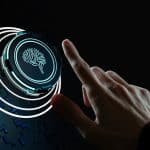Microsoft unveils VALL-E, an advanced text-to-speech AI that can speak in anyone's voice based on a 3-second sample

Microsoft has revealed details of its latest foray into the world of artificial intelligence. Billed as a "neural codec language model", VALL-E is an advanced AI-driven text-to-speech (TTS) system that the developers say can be trained to speak like anyone's based on just a three-second sample of their voice.
The result is an incredibly natural-sounding TTS system that takes an entirely different approach to existing systems. Able to convey tone and emotion better than ever, VALL-E sounds realistically human, but there are concerns that it could be used for audio deepfakes.
How ChatGPT could become a hacker's friend

The ChatGPT artificial intelligence bot has been causing a bit of a buzz lately thanks to its ability to answer questions, ask follow ups and learn from its mistakes.
However, the research team at Cybernews has discovered that ChatGPT could be used to provide hackers with step-by-step instructions on how to hack websites.
The rise of the digital coworker [Q&A]

Talent shortages are affecting many industries at the moment and increasingly enterprises are turning to technologies like robotic process automation (RPA) to fill the gaps.
Now there's a new alternative in the form of the 'digital coworker', designed to work seamlessly alongside a company's human workforce. We spoke to Chaz Perera, CEO and co-founder of Roots Automation, to discover more about this latest innovation.
Navigating the global technology skills gap with AI-moderated upskilling

Work trends have rapidly changed across the world, post-pandemic. How and where people choose to work now or in the future is and will be radically different from how it used to be a few years ago. Labor markets across all sectors have undergone drastic shifts in terms of talent requirements and demands, as businesses across the board increasingly accelerate the adoption of automation and emerging technologies.
This has resulted in a growing skills scarcity across the globe. As more technical and digital skills are required by workers in order to master emerging technologies, many organizations risk being left behind due to an undereducated and underprepared workforce. Businesses need to take the required steps now towards ensuring that their workforce, both present and future, has the training and digital skills needed to thrive in the working environment set to emerge over the next decade.
Modernized supply chains, resilience and accessibility -- AI predictions for 2023

It's the time of year when people start to look ahead to the next one and offer predictions for what might lie ahead. For the past couple of years this has rather been hijacked by events including COVID, the Ukraine conflict and consequent economic disruption.
This hasn't stopped people in the tech world making predictions though, in fact we've received more this year than ever. So in the first of a series of roundups let's take a look at what might lie ahead for AI in 2023.
We wanted to know what features Windows 12 might have to offer, so we asked an AI

Windows 12 will offer a number of improvements that will make it better than its predecessor, Windows 11. One of the biggest advantages of Windows 12 is that it will offer improved security. Microsoft is introducing multiple new features to better protect user data, such as a new secure kernel, a secure boot process, and a new sandbox security model.
In addition, Windows 12 will offer improved performance, with better memory management and faster start-up times. The new version of Windows will also provide better support for multi-core processors, and it will introduce new graphics APIs such as DirectX 12 and Vulkan, which will provide improved performance in gaming and multimedia applications.
How AI can help access collective memory within the enterprise [Q&A]

Many industries rely on the accumulated knowledge and experience of both middle and upper management. However, this can lead to jobs being done in a certain way simply because, 'they always have been', which in turn can lead to repeated mistakes.
Relying on this collective memory can also make it hard to access information, particularly in the new era of hybrid work.
AI and metaverse technologies boost training and streamline onboarding for employees

We live in a world where businesses constantly reinvent themselves to remain competitive. Automation and digitization goals feature in well over half of all today’s businesses’ long-term corporate strategies, according to PwC's most recent annual Global CEO Survey. Which is why artificial intelligence (AI) and virtual worlds or 'metaverse' related technologies and tools have risen to prominence, particularly in relation to improving on-the-job training and upskilling new talent.
In 2022, many businesses are now starting to benefit from the application of AI and metaverse technologies in providing streamlined training and onboarding for employees. Combining AI and metaverse technologies affords companies an incredible new opportunity to train and equip people with the necessary skills to navigate the future of work.
The rising value of flexibility in life, work and AI

Innovation calls upon us to challenge existing paradigms. Women in technology understand this all too well. Many of us have stepped into roles that were traditionally dominated by men. We’ve had to swim upstream to establish our bona fides.
Personally, I’m proud to have achieved a host of "firsts" in my career, and today I’m surrounded by creative thinkers who are applying new technology to approach old problems differently. In my world, challenging existing paradigms is par for the course.
How does security posture management guard cloud environments?

Cloud technology has been gaining momentum in the last couple of years.
It threw a lifeline to companies by making remote work at the start of the crisis possible, enabled scaling for a reduced cost, and made information that much more accessible. However, all of these benefits also come with security risks for organizations that haven’t adequately protected their new infrastructure.
The ultimate AI use case -- engaged, productive and happy employees

Business adoption of AI is on the rise in the UK. According to a Government report, roughly 15` percent of all UK businesses have adopted at least one AI technology, with a further 10` percent planning to do so. Adoption is really taking off in larger firms, with more than two-thirds (68` percent) of them having used AI.
But what practical benefits can AI bring? Use cases seem to be emerging daily from many different business departments, but arguably, its HR teams that should be sitting up and taking notice more than others.
How to build AI that fosters unbiased customer interactions

As AI is used more often for several purposes, issues of bias -- often injected unintentionally -- have become more apparent. On a broad level, bias tends to stereotype people. Customers should have useful and positive experiences with AI, but sometimes, these unexpected biases can sour that interaction, leaving customers feeling frustrated or marginalized. As customer service drives customer loyalty, and loyalty drives revenue, this can negatively impact the business as a whole.
Bias in AI can manifest itself in many ways. A sizable percentage of executives polled by Speechmatics found that voice-recognition software struggled to understand some voices.
Your personal data has become an AI training manual and you're not getting it back

Art imitates life, that we all know. But what if art imitates your personal life, your personal likeness and does it so well that the line between what is real and surreal blurs?
Unbeknownst to us, we are becoming models for state-of-the-art AI technology that trains on terabytes of poorly filtered data scraped from all over the web. This data can include our personal photos, medical images, and even copyrighted content -- basically, anything ever posted online.
Harnessing the power of AI to combat fake reviews [Q&A]

There's a lot of talk about how artificial intelligence (AI) is changing the world. And it's true -- AI has already started transforming the healthcare, finance, and manufacturing industries. But there's one area where AI is causing some severe problems: fake reviews.
We spoke with Truely CEO JP Bisson about AI technology and how companies can use it to protect their interests.
Hit the snooze button farmers: The huge potential of applying AI to agriculture

A custom smart farming system can help gather valuable data, provide actionable outcomes, and save farmers significant time, money, and resources.
In recent years, a significant number of agriculture businesses have considered moving from human-reliant farming to autonomous farm management systems. The growing trust between agribusinesses and technology companies, as well as a rich arsenal of technologies that can accommodate the needs of farms, are the two major factors that enable this transformation.
Recent Headlines
BetaNews, your source for breaking tech news, reviews, and in-depth reporting since 1998.
© 1998-2025 BetaNews, Inc. All Rights Reserved. About Us - Privacy Policy - Cookie Policy - Sitemap.